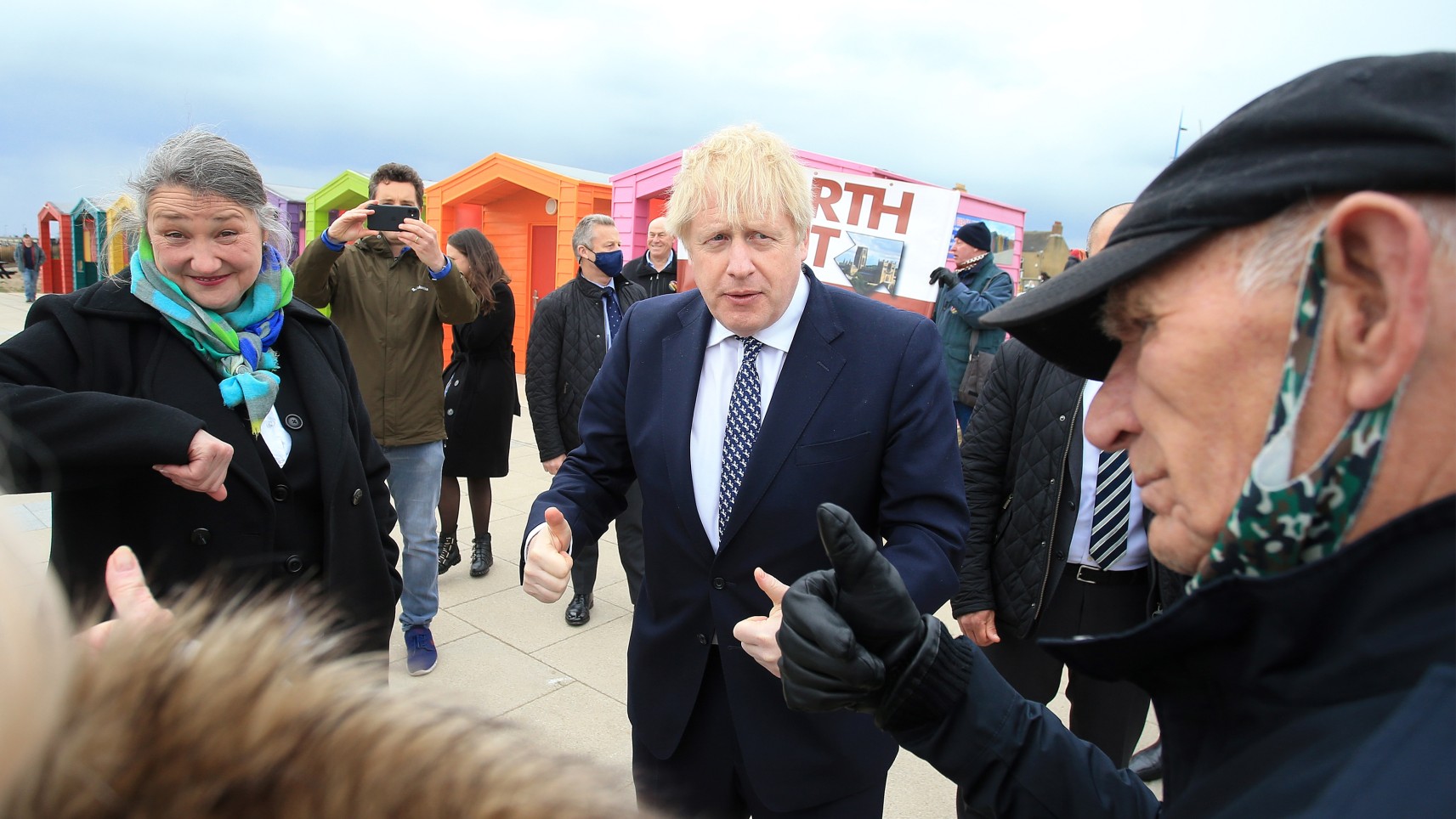UK elections 2021: why the results matter and who is tipped to win
Vote is barometer of what the electorate is thinking after a turbulent year

A free daily email with the biggest news stories of the day – and the best features from TheWeek.com
You are now subscribed
Your newsletter sign-up was successful
Tomorrow’s day of bumper local elections has been dubbed “Super Thursday” after last year’s were delayed because of the coronavirus pandemic.
This year’s vote will therefore be the biggest since 1973, when local government was reorganised, says Stephen Bush in the New Statesman.
And, with many seats last fought over “before the 2016 Brexit vote and the subsequent realignments in voting behaviour”, there is a “greater possibility of surprising results”, he adds.
The Week
Escape your echo chamber. Get the facts behind the news, plus analysis from multiple perspectives.

Sign up for The Week's Free Newsletters
From our morning news briefing to a weekly Good News Newsletter, get the best of The Week delivered directly to your inbox.
From our morning news briefing to a weekly Good News Newsletter, get the best of The Week delivered directly to your inbox.
When are the elections?
Several different elections are due to be held on Thursday 6 May.
What elections are taking place?
- Local council elections in England
- Local and combined authority mayoral elections
- Mayor of London and London Assembly elections
- Police and crime commissioner elections in England and Wales
- Welsh parliamentary election
- Scottish parliamentary election
- Hartlepool by-election
When do the results come out?
A free daily email with the biggest news stories of the day – and the best features from TheWeek.com
Polls close at 10pm tomorrow, but the full results might not be announced for a few days. Unlike other years, when votes are usually counted overnight, the outcome is likely to be delayed due to the need for staff to maintain social distancing, explains the Institute for Government.
While some England council and the Hartlepool results should filter through in the early hours of Friday morning, others such as the police and crime commissioner results might take until Monday to be declared. The London mayor is expected to be announced on Saturday afternoon.
Why do they matter?
The 6 May elections will be “looming large in the minds of politicians and strategists across all the major parties and particularly the Conservatives”, says Mark Wallace on iNews.
The “drought of elections” during the pandemic means this year is the “political equivalent of a lottery rollover”, and will offer a much-needed barometer of what the electorate is thinking. “This is the closest we ever get in this country to a midterm election,” says Wallace.
It will also be the first time that long-term Labour supporters who switched to the Tories in 2019 will have a chance to revisit their decision.
Harry Phibbs at ConservativeHome points out that due to the “extraordinary” general election results 15 months ago, “we have some local authorities with Conservative MPs but no Conservative councillors”.
“The ‘red wall’ has already been breached,” he says. “Will it now be demolished?”
Who is tipped to win?
Betting app SBK gives the Conservatives an 85% chance of winning the highest vote share in the local elections, while a major YouGov poll predicts that the Tories will gain 90 extra councillors in Red Wall councils.
“Starmer’s Labour party could be in for yet another tough night in their former heartlands,” says the data firm’s research manager, Patrick English.
But professor Michael Thrasher, Sky News elections analyst, warns that the “intermingling of two local electoral cycles means seat forecasting is riskier than usual” and it will be “difficult to judge the outcome”.
Both party leaders could potentially “claim victory simply by cherry-picking different outcomes”, says Thrasher. For example, the Conservatives “seem certain to lose county council seats, but these might be offset by gains in areas that proved fertile at the general election”.
The by-election in Hartlepool, triggered by the resignation of Labour MP Mike Hill, is “viewed by many as the definitive judgment” on the first year of Starmer's leadership, says Patrick Maguire at The Times.
Labour has lost its lead in the polls for the seat, with the latest survey from Survation, for ITV’s Good Morning Britain, putting the Conservatives 17 points ahead.
In London, Labour’s Sadiq Khan is on track to remain in City Hall as the city’s mayor, while Tory mayor Ben Houchen looks set to retain Tees Valley. His success has been held up as a way for Westminster parties to gain a foothold in new regions. Sebastian Payne at the Financial Times says “the biggest danger for Labour is what one red wall Tory MP described as the ‘Houchen factor’”: that voters in Hartlepool will “double tick” to re-elect the mayor and Jill Mortimer as their first Conservative MP.
And in Scotland, polls have been flipping between “an outright SNP victory and a pro-independence majority bolstered by the Green party”, notes The Guardian. Crucially for the Union, the newspaper says First Minister Nicola Sturgeon “has always argued that Boris Johnson cannot ignore democracy if the SNP wins a Holyrood mandate”.